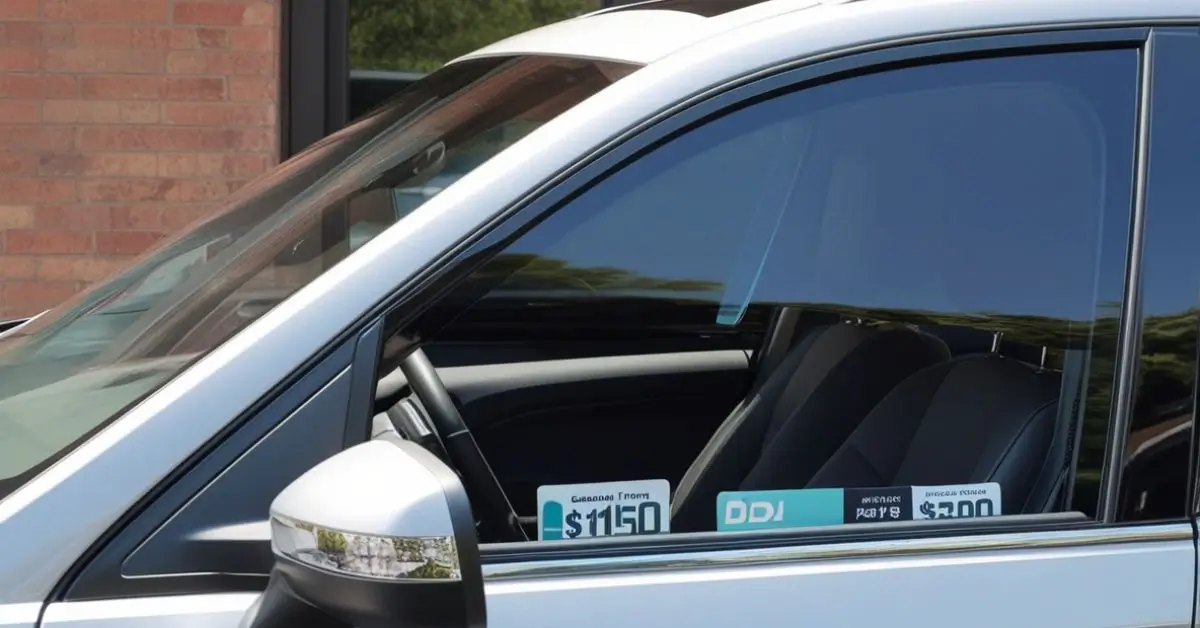Vehicle Type
The type of vehicle you drive plays a major role in determining tinting price factors. For example, car tint film for sedans is often more affordable due to fewer and smaller windows compared to trucks and SUVs. Trucks, with their larger and often curved glass surfaces, demand specialized expertise, increasing the window tint cost. Additionally, luxury vehicle tinting requires precision due to unique designs, making it more expensive.
SUV window tint cost is higher than sedans because of larger glass areas and rear windows. Electric cars like Tesla also have unique needs. Tesla window tint requirements include curved glass, which adds complexity. For these vehicles, privacy with window tint is often prioritized to protect high-tech interiors.
Window Size & Number
The window size impact on cost cannot be ignored. Larger windows need more material and time for installation. Similarly, the number of windows for tinting matters. A two-door coupe with just four windows costs less than a full-sized SUV with seven or more. Vehicles with unique window shapes or curved designs, like Teslas, are more challenging, adding to the cost.
For reference, here is an estimate:
| Vehicle Type | Average Tinting Cost |
|---|---|
| Sedan | $150 – $300 |
| Truck | $200 – $400 |
| SUV | $250 – $500 |
The choice of vehicle tinting options also affects pricing. Whether you opt for heat reduction films or UV protection films, the type of film determines the expense.
Window Tint Film Type
The choice of film greatly affects the window tint installation cost. Ceramic tint advantages include superior heat rejection, UV blocking, and clarity. While more expensive, ceramic window film is popular for hot climates.
Carbon tint performance offers durability and a sleek finish without fading, making it ideal for trucks and SUVs. On the other hand, dyed tint disadvantages include lower durability and fading over time, but it remains an affordable window tint option for budget-conscious drivers. Choosing the right film ensures both style and functionality.
| Film Type | Benefits | Average Cost |
|---|---|---|
| Ceramic Window Film | Superior UV and heat protection | $400 – $800 |
| Carbon Window Film | Durable, fade-resistant | $250 – $500 |
| Dyed Window Film | Affordable, basic privacy | $100 – $250 |
Why Choose Professional Window Tinting?
Choosing professional vs DIY tinting is important for long-lasting results. While DIY kits seem cost-effective, they lack the precision and glass tinting warranty offered by experts. Professionals ensure compliance with local laws, especially in the USA, where tint regulations vary.
Automotive tinting services also guarantee a flawless finish. This is vital for vehicles with curved glass tint challenges or luxury designs. Professionals use high-quality films and tools, preventing issues like bubbles or peeling. Their expertise ensures that your sun protection through tint remains effective for years.












